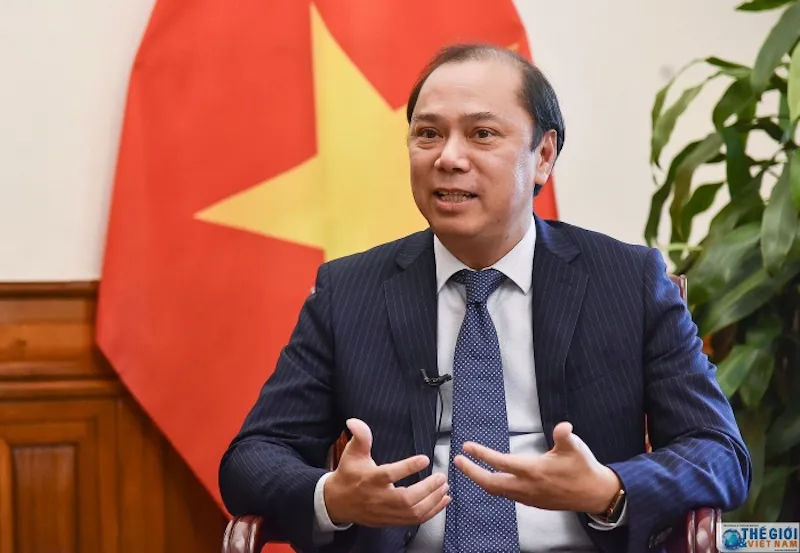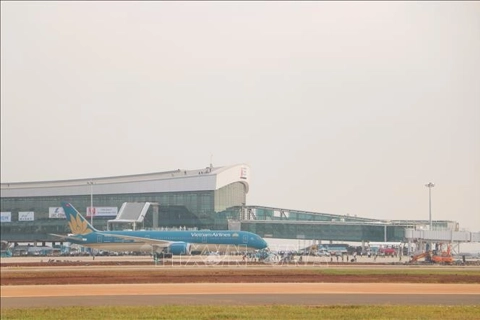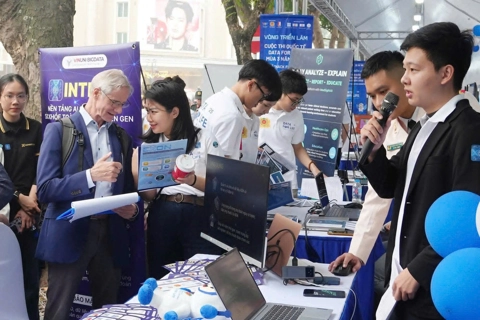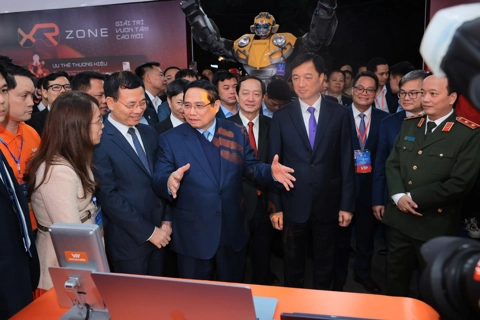ASEAN Summit in Hanoi expected to boost intra-regional economic links
Covid-19 helped the countries to tap into the domestic market potential and that of other markets in the bloc.
Enhancing intra-regional economic links is always a big challenge for ASEAN nations, Vietnam included, but the 10-member bloc will gradually find solutions towards strengthening internal cooperation, Deputy Foreign Minister Nguyen Quoc Dung has stated.
ASEAN countries will gradually find solutions towards strengthening cooperation among the parties, Deputy Foreign Minister Nguyen Quoc Dung said. Photo: The gioi & Viet Nam |
At a press conference on the 36th ASEAN Summit on June 23, Deputy Minister Dung said that compared to the EU, intra-ASEAN trade is modest, accounting for only around 20% of the bloc's total trade.
“ASEAN countries still want to strengthen intra-regional economy, but due to the structure of goods, business practices, and cooperation with partners, economic cooperation with partners outside of the bloc is much more extensive than within the bloc,” said Dung.
ASEAN leaders have agreed on the need to further promote intra-regional economic links. Covid-19 has helped the countries tap into the domestic market potential as well as that of other markets in the bloc, according to Deputy Minister Dung.
In order to strengthen intra-regional economic links, the ASEAN countries need to find solutions for sharing and cooperation, including issues related to tariffs and non-tariff barriers which aim to protect domestic trade.
This is also the issue that needs to be settled to further promote intra-regional economic cooperation. However, it depends on the interests of businesses and each country, so this is not a simple issue, Dung added.
Enhancing intra-ASEAN economic and trade links in line with the theme “cohesive and responsive” is one of the priorities of Vietnam as ASEAN chair in 2020.
According to domestic and international experts and policy makers, the potential of intra-ASEAN cooperation is huge. The region has come up with significant initiatives and commitments to promote intra-regional links.
Currently, most of tariffs among ASEAN countries are zero while investment and services are promoted. ASEAN is also moving towards multilateral trade agreements such as the Regional Comprehensive Economic Partnership (RCEP).
The 36th ASEAN Summit will be held online on June 26 as Covid-19 outbreaks are sweeping across the globe, including Southeast Asia.
Prime Minister Nguyen Xuan Phuc will chair the opening and the plenary sessions, and the special sessions on women’s empowerment in digital age; dialogues between ASEAN leaders and the ASEAN Inter-Parliamentary Assembly (AIPA), ASEAN youth representatives and ASEAN Business Advisory Council (ASEAN-BAC).












